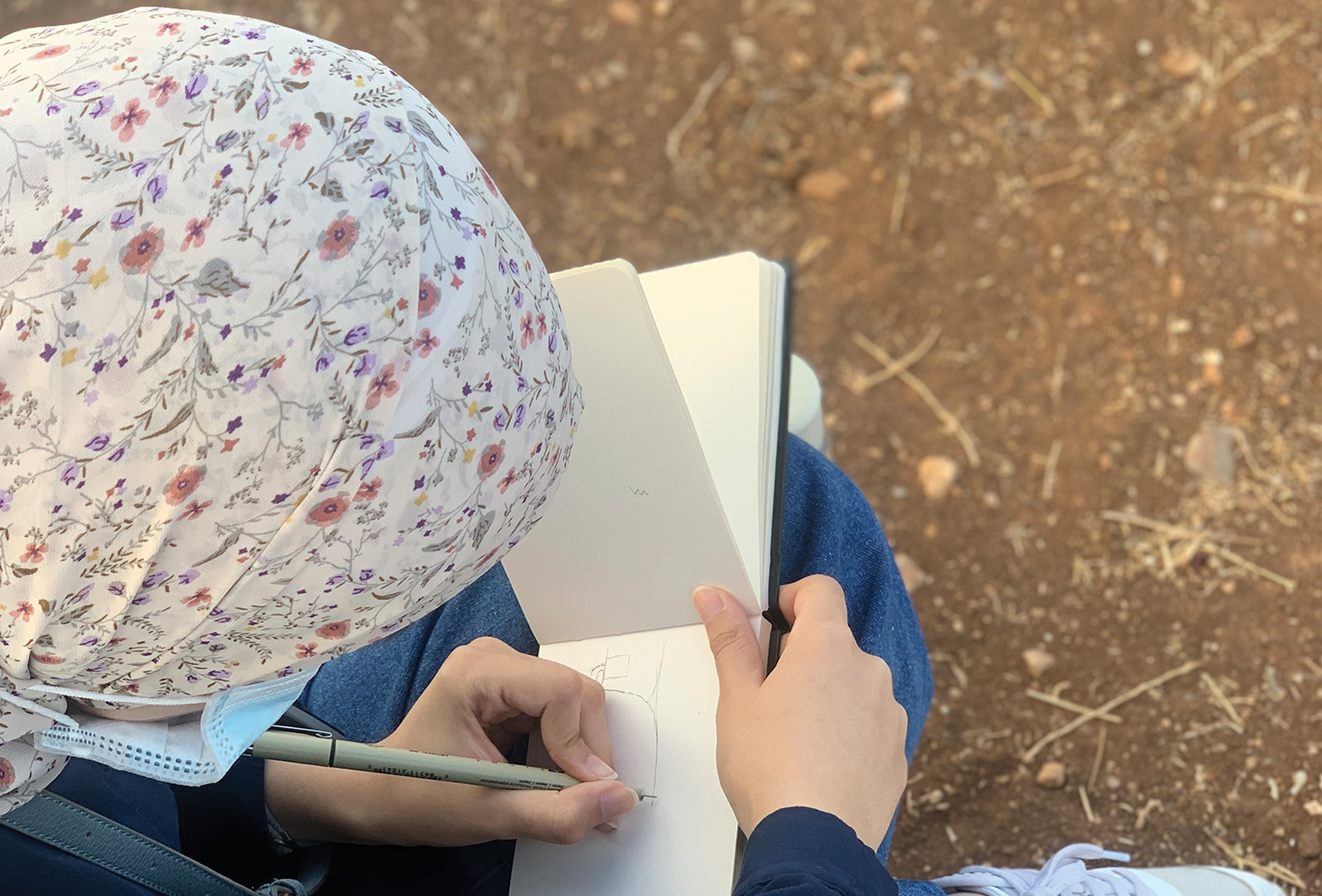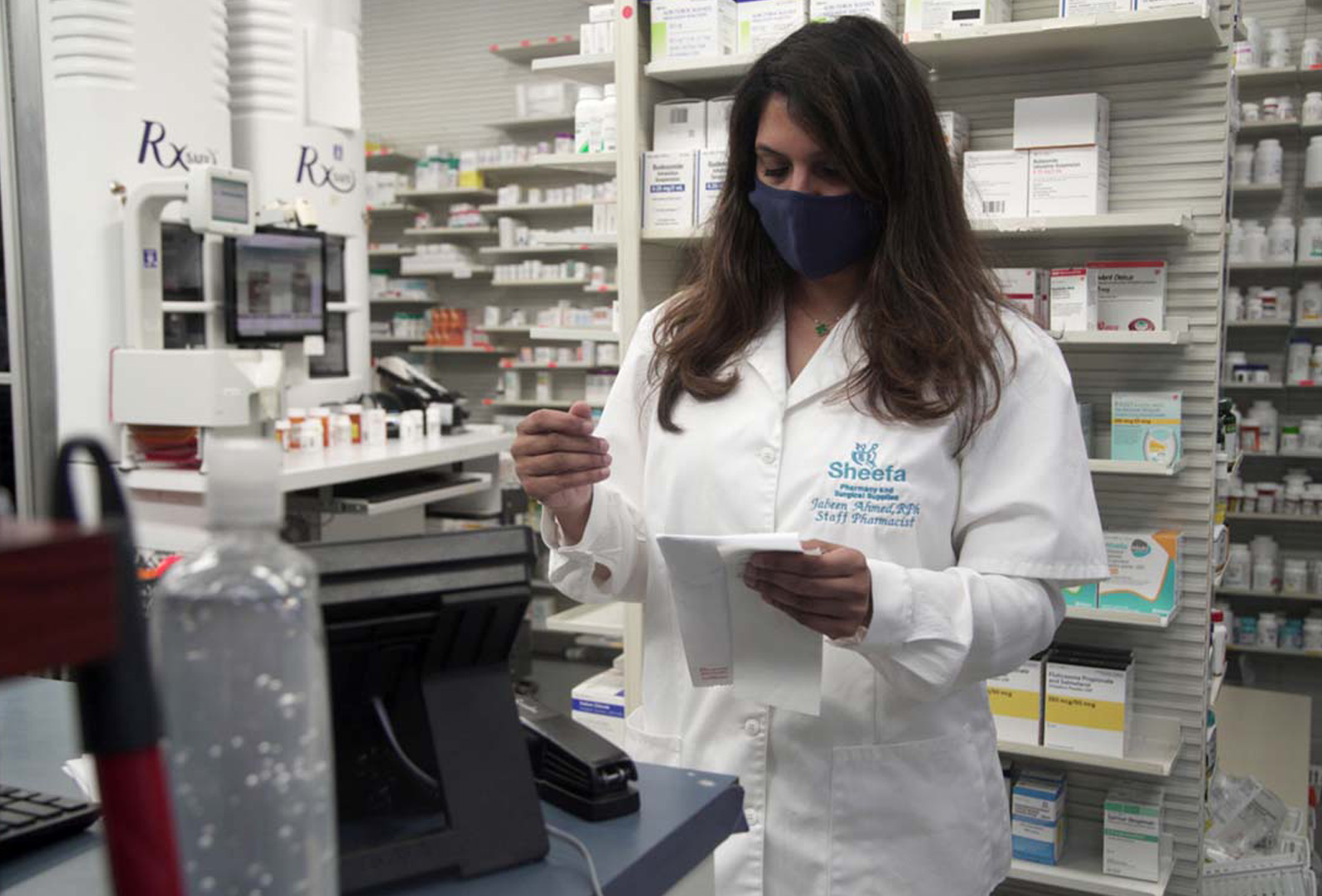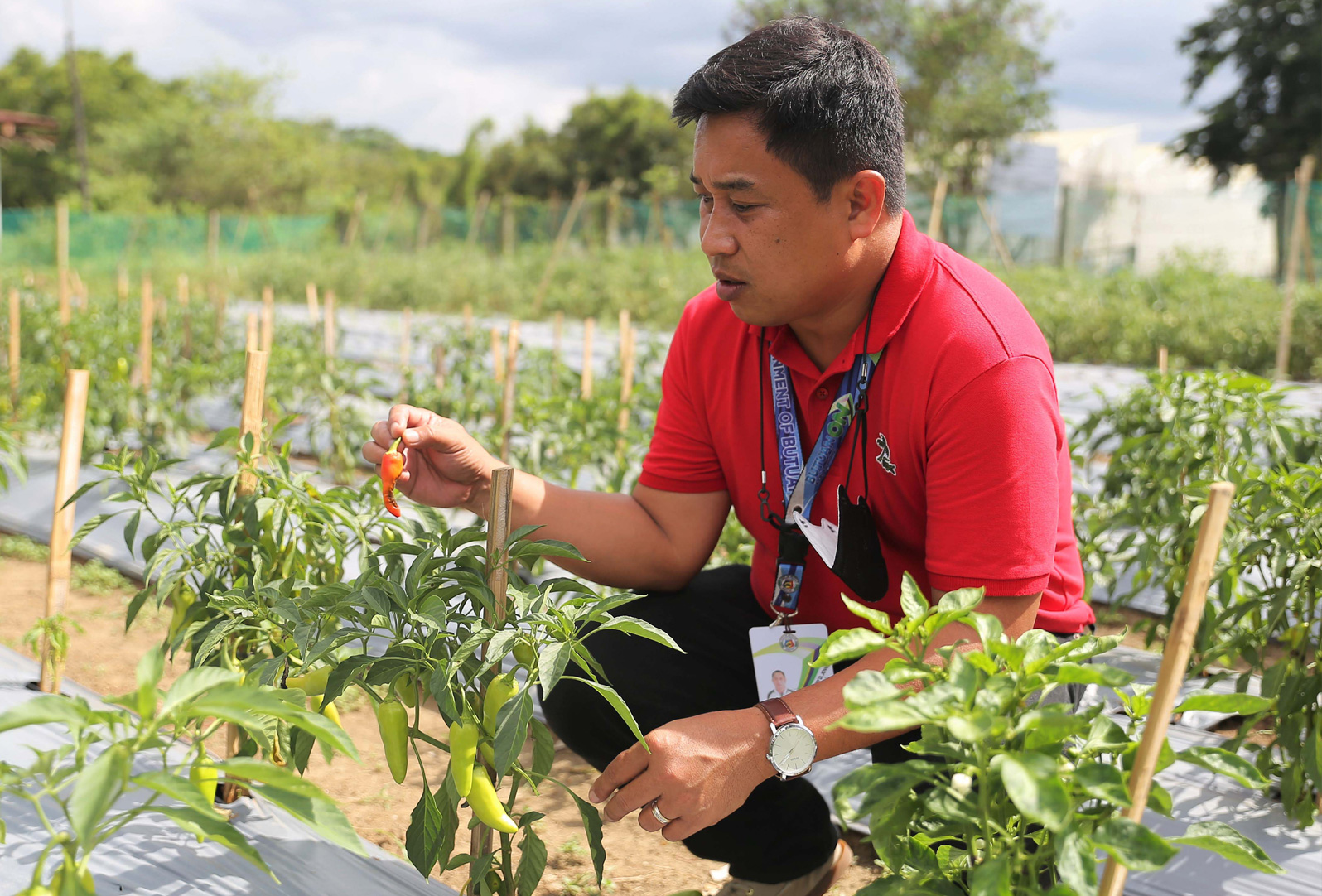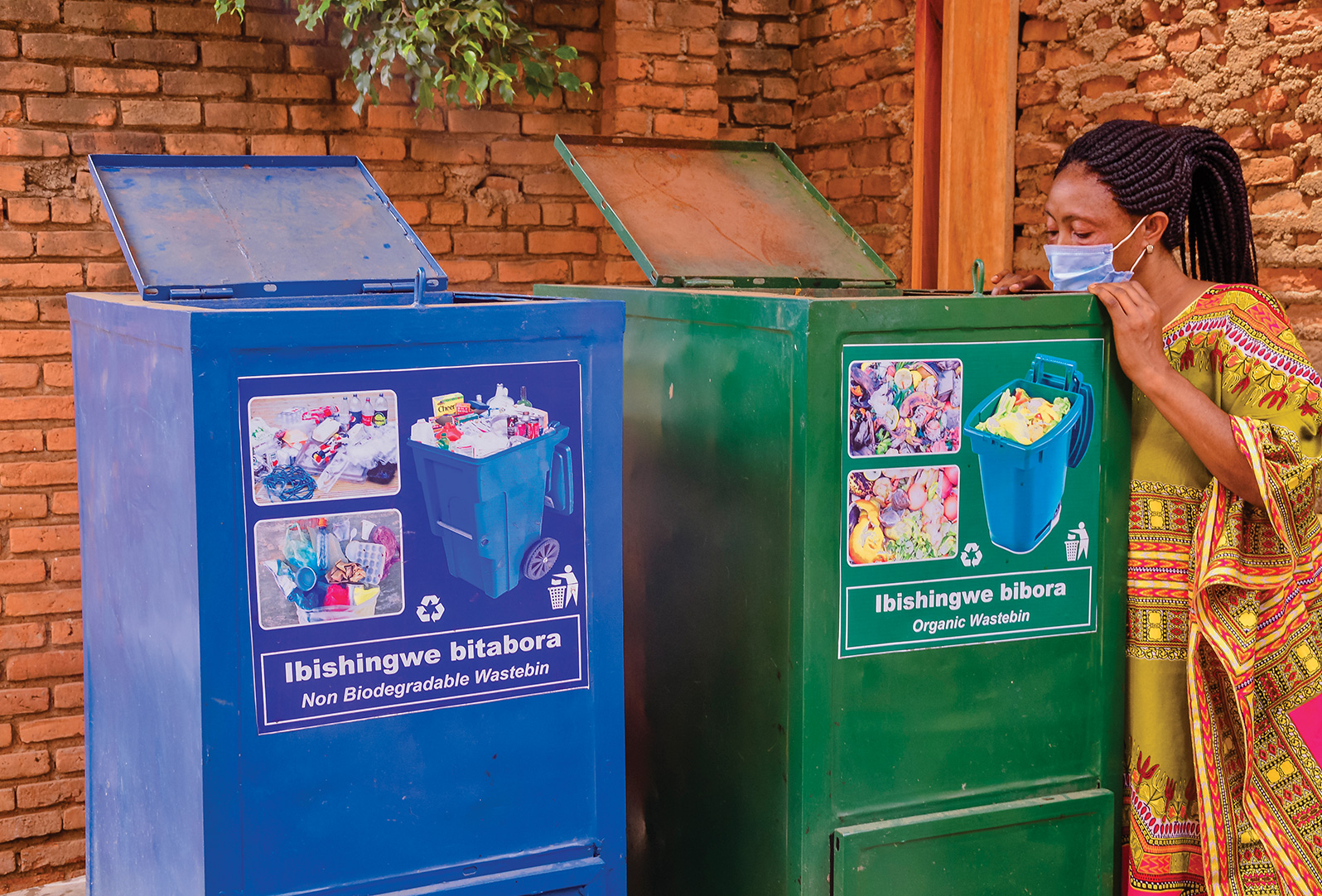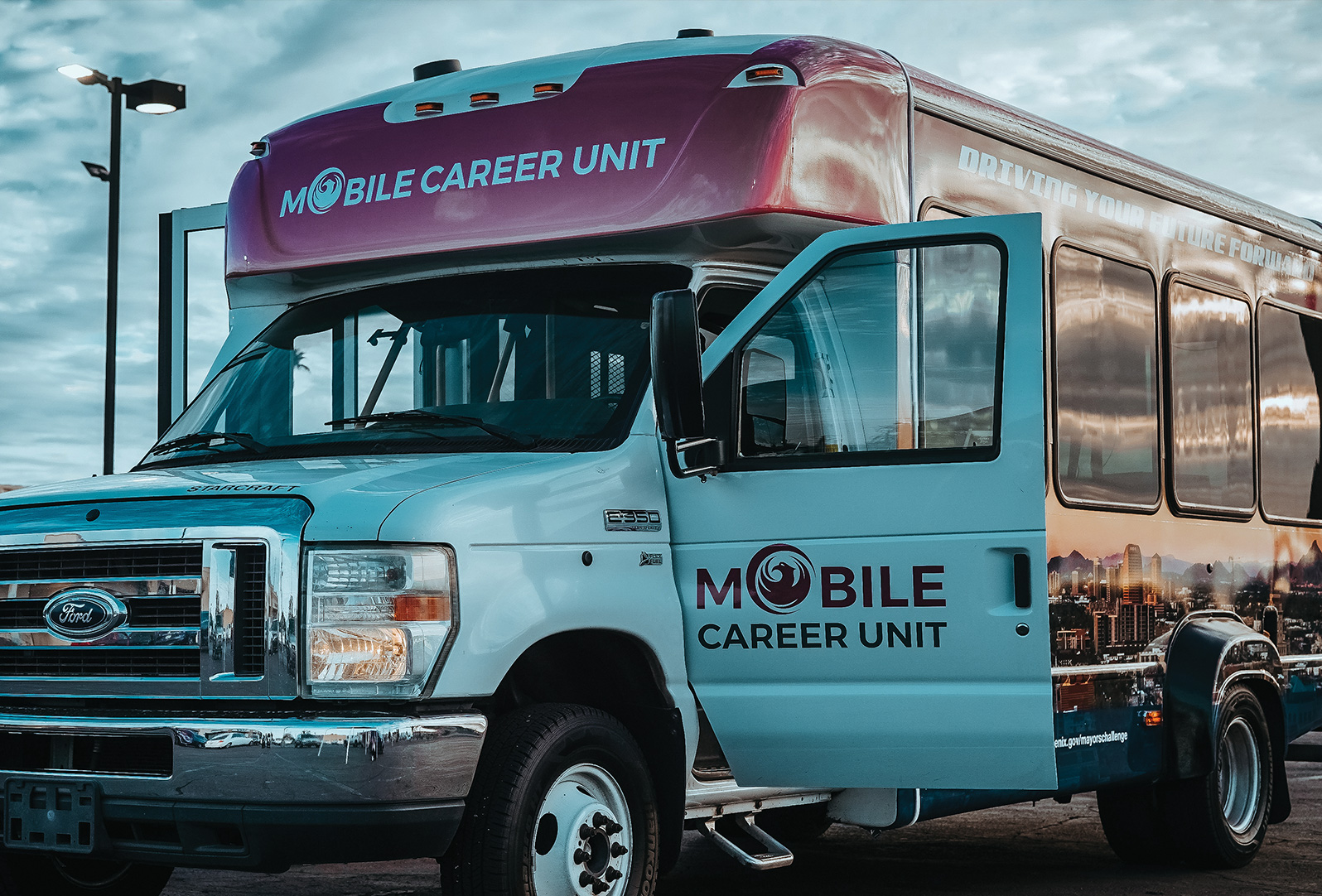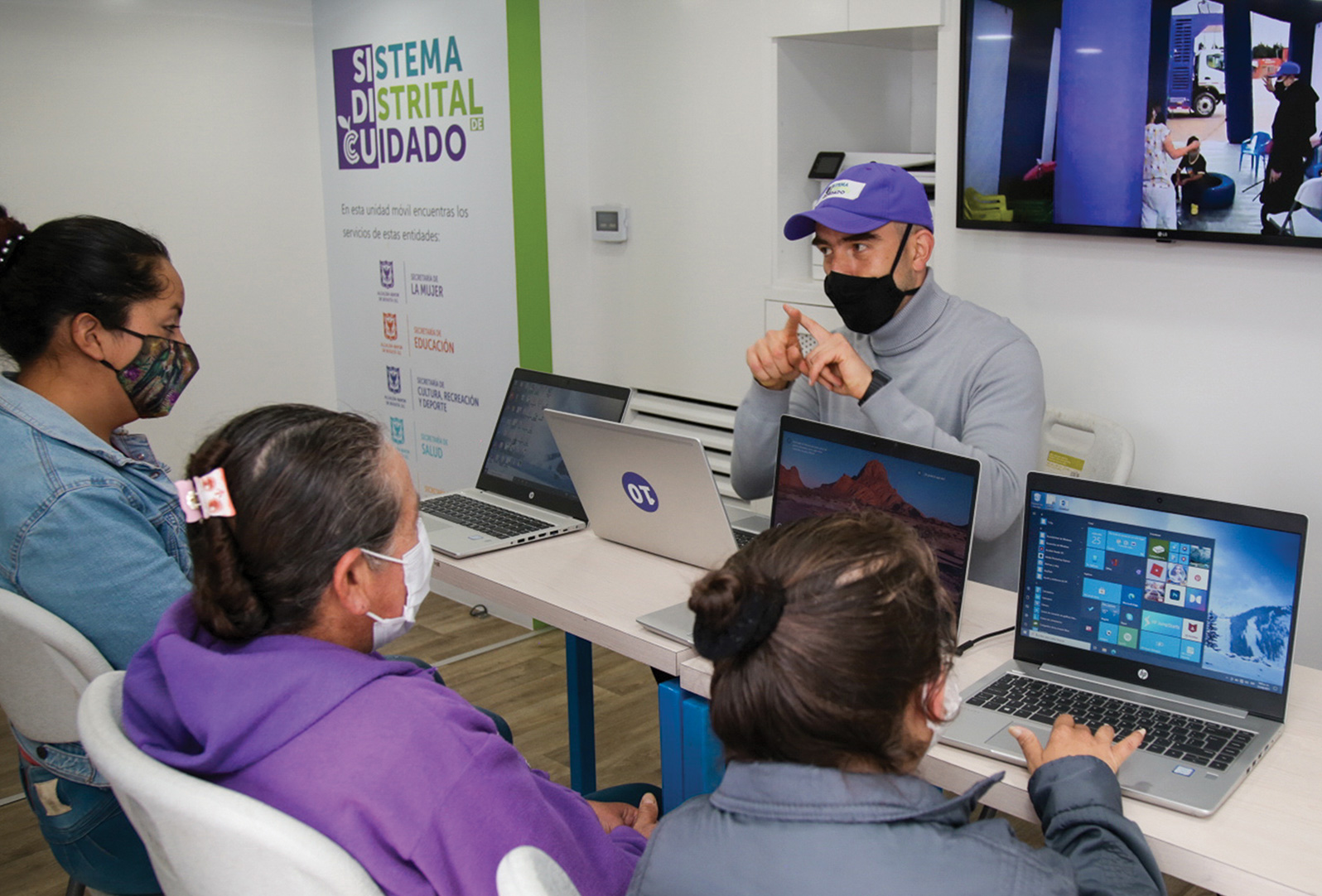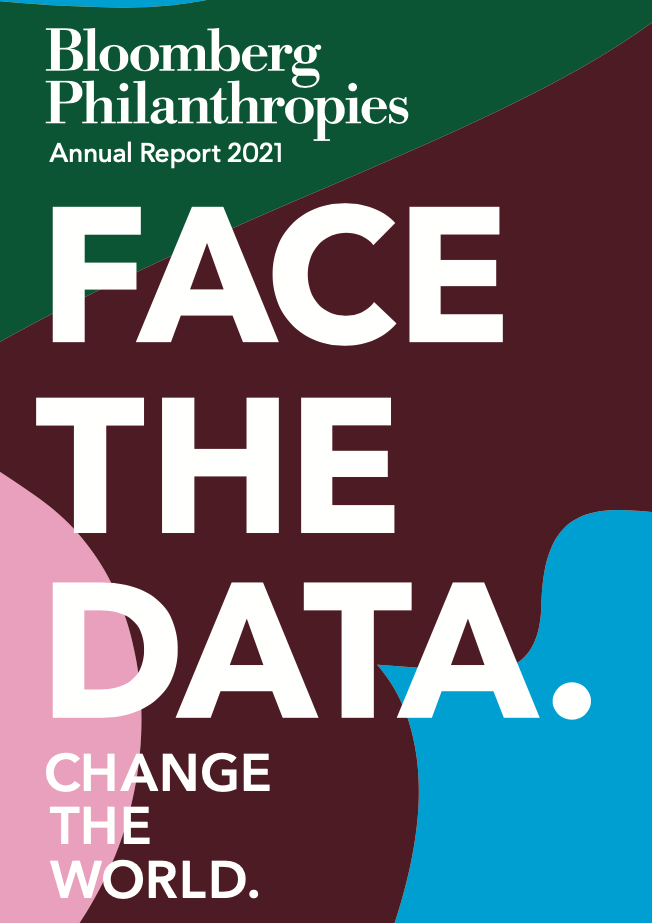Strengthening the Way City Governments Work to Improve Residents’ Lives
Drawing on the Bloomberg administration’s experience leading New York City, the Government Innovation program reflects Bloomberg Philanthropies’ belief in the power of local governments to improve lives and tackle pressing challenges. This portfolio focuses on developing great local leaders, supporting bold public innovation, and creating more effective city halls, especially by harnessing data. In 2021, these efforts were bolstered by investments in two new university centers that will focus on strengthening the capabilities of mayors and other public sector leaders for decades to come.
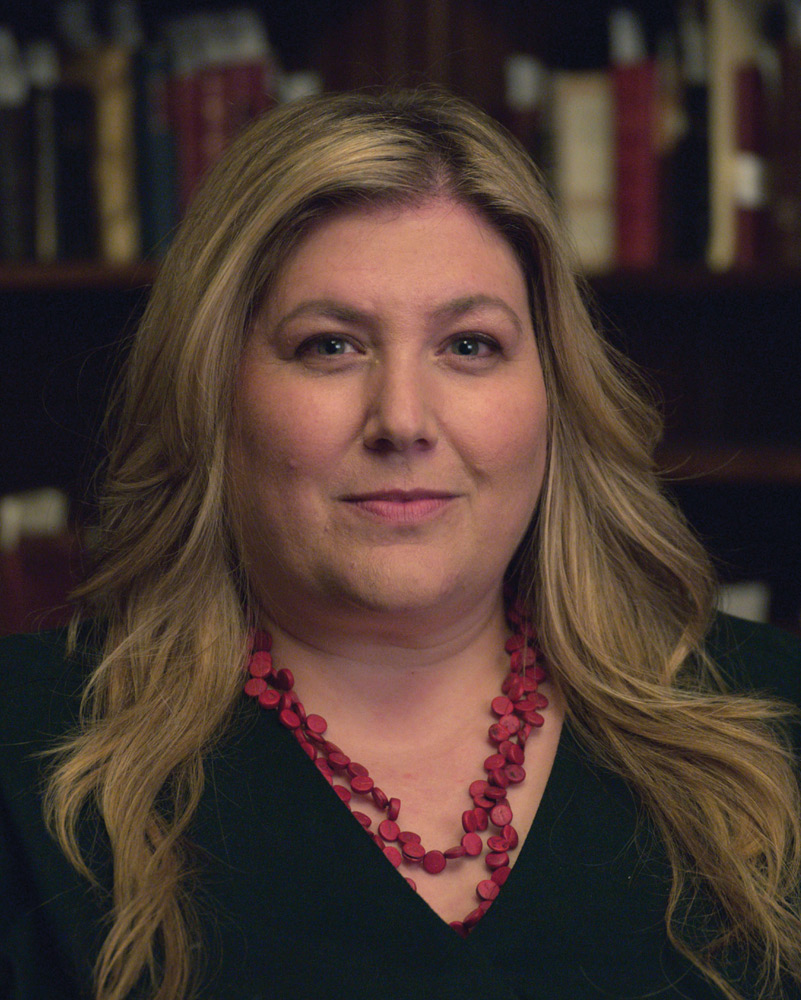
Stories of Impact
Beth Blauer
Associate Vice Provost for Public Sector Innovation, Johns Hopkins University
Creating New Centers to Invest in City Leaders and Improve Cities
Bloomberg Center for Cities at Harvard University
The new Bloomberg Center for Cities at Harvard University creates a permanent home for Bloomberg Philanthropies’ work with the university to empower city leaders. The center includes the flagship Bloomberg Harvard City Leadership Initiative, as well as 10 newly endowed faculty positions named for Bloomberg Philanthropies board member Emma Bloomberg, a graduate of Harvard Kennedy School and Harvard Business School.
Bloomberg Philanthropies launched the Bloomberg Harvard City Leadership Initiative in 2017 as a first-of-its-kind leadership training program for mayors and senior city officials around the world, because it was clear that mayors and their teams needed more than just on-the-job training to be successful. Every year since, Bloomberg Philanthropies has partnered with Harvard Kennedy School and Harvard Business School to convene 40 mayors and 80 of their top deputies for concurrent year-long leadership programs. In 2021, after a year of virtual meetings, the initiative resumed in-person convenings with its fifth class, the Class of 2022. To date, 196 mayors and 318 senior leaders from 25 countries have completed the program.
Because of the Bloomberg Harvard City Leadership Initiative, our team is engaging in transformational government, not just transactional government.
– Mayor Danene Sorace; Lancaster, Pennsylvania
The initiative is strengthening mayoral leadership in cities across the United States and the world. The overwhelming majority of participants have reported improved leadership and organizational abilities, and the most recent cohort shared that it was particularly effective for their crisis management and communication skills. The Bloomberg Center for Cities will continue to expand this initiative and provide additional training on a range of topics, from procurement to negotiation.
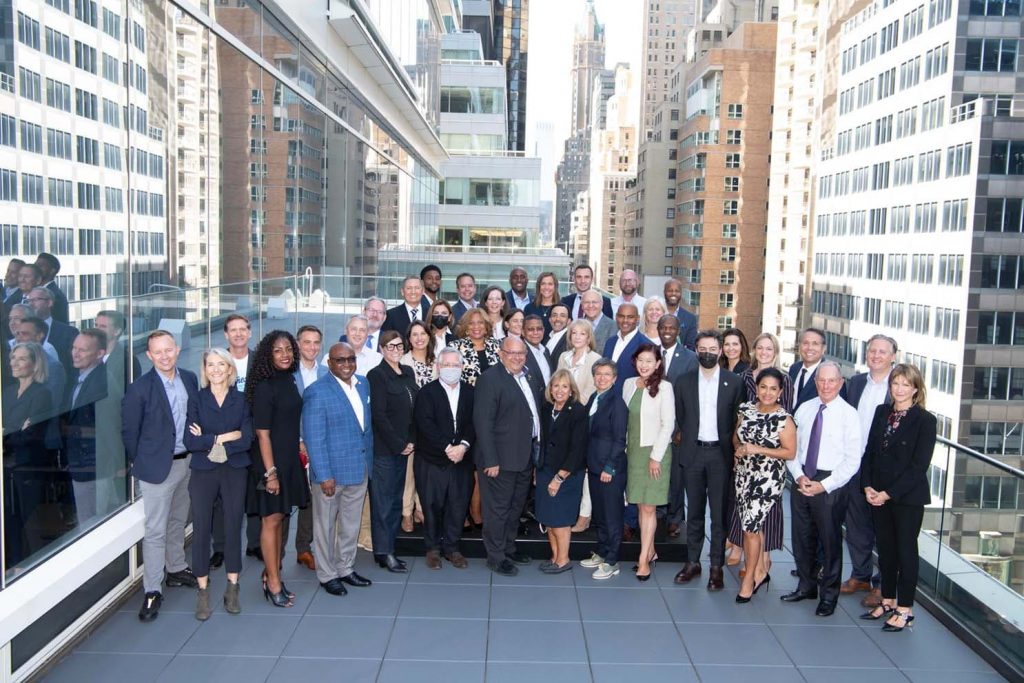
I think Harvard and Bloomberg have given us tools to perform with heart.
— Mayor Carolina Cosse; Montevideo, Uruguay
Bloomberg Center for Public Innovation at Johns Hopkins University
The new Bloomberg Center for Public Innovation at Johns Hopkins University is using world-class research to spark innovation, create more nimble government institutions, and inspire trust in public service. The center aims to boost public-sector innovation and civic engagement by training mayors and their staff in proven methods for developing new and data-driven ideas; helping cities digitize their services for residents; supporting research and student fellowships that build the next generation of innovative leaders; and assisting cities with engaging their citizens through service. The center will serve as a hub for Bloomberg Philanthropies’ existing programs, like Cities of Service and the Innovation Teams (“i-teams”) program, as well as a place for city leaders to come for innovative research, ideas, and talent.
Cities of Service Spotlight
Now housed at the Bloomberg Center for Public Innovation at Johns Hopkins, Cities of Service was founded in 2009 by Mike Bloomberg and 16 other mayors under the tenet that government and resident collaboration is a force for good. Cities of Service supports a coalition of 280 cities across the Americas and Europe that are committed to strategically increasing the impact of volunteerism. Through the Love Your Block program, select U.S. cities are each awarded $100,000 to fund mini-grants that support residents’ efforts to help neighbors and uplift neighborhoods. In 2021, eight cities were selected for Love Your Block grants, each of which reflect these cities’ demonstrated commitment to diversity, equity, and inclusion.
Spurring Innovation Through Competition
Mayors Challenge
As cities around the world turned their attention to pandemic recovery, Bloomberg Philanthropies launched the 2021 Global Mayors Challenge, an ideas competition focused on uncovering bold, and replicable, urban innovations that have emerged out of COVID-19 and its ensuing crises. Mayors from 631 cities in 99 countries submitted applications. From this highly competitive field, 50 finalists were selected. These “Champion Cities” refined their ideas and competed to be among the 15 grand-prize winners, who each won $1 million and robust multiyear technical assistance to implement and scale their ideas. The winning ideas address one or more of four critical challenges: economic recovery and inclusive growth; health and well-being; climate and environment; and gender and equality.
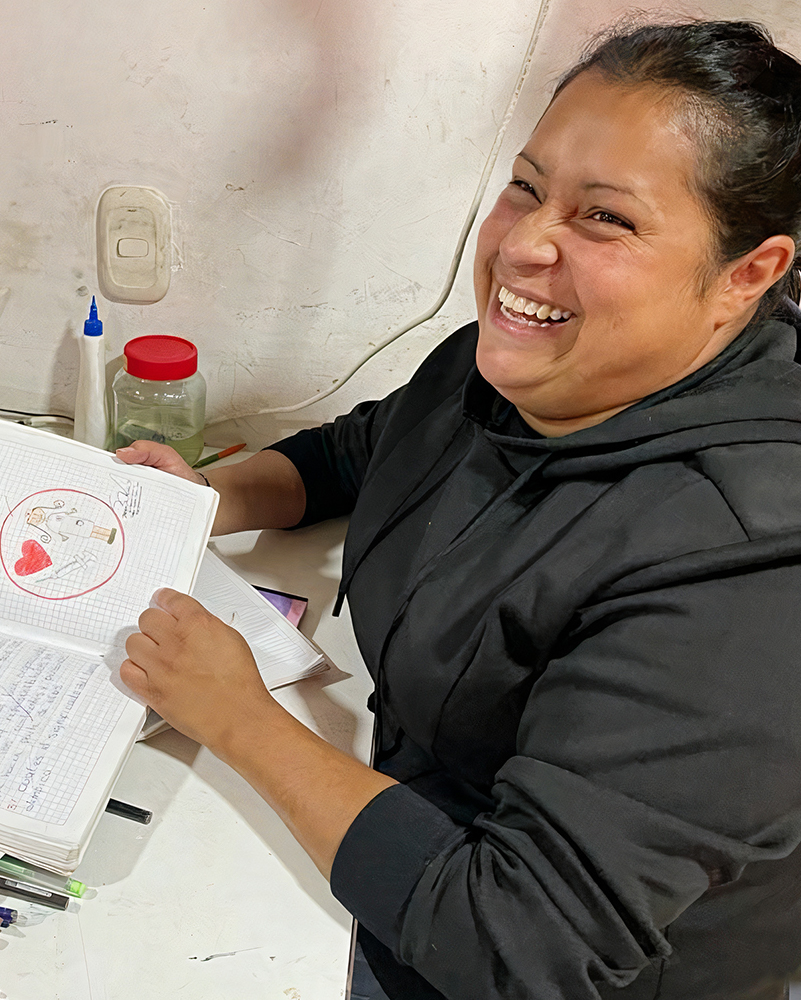
Stories of Impact
Sandra Johanna Daza
Care Block Beneficiary, Bogotá, Colombia
The ideas submitted by the Champion Cities provided a powerful snapshot of the innovation priorities of the world’s cities. At the global level, innovations focused on improving health and reducing unemployment were most common. Racial justice emerged as the area of highest priority for U.S. cities, while social inclusion topped the European submissions. In Africa, where the world is experiencing its fastest rates of urbanization, infrastructure was dominant.

The 2021 Global Mayors Challenge follows previous challenges in the United States (2013 and 2018), Europe (2014), and Latin America and the Caribbean (2016). More than 250 cities are replicating winning ideas from the first four challenges, spreading the effort’s impact globally.
Spotlight
Chosen from 50 finalists across 29 nations, the 15 winners of the Global Mayors Challenge are:
- Amman, Jordan: Mapping public service infrastructure to improve the reach and response of critical city services.
- Bogotá, Colombia: Concentrating employment, education, and care resources in certain neighborhood blocks to ease the burden on women who are unpaid caregivers.
- Butuan, Philippines: Strengthening local food production by giving farmers better data about crops to plant and reducing the financial risks they face.
- Freetown, Sierra Leone: Providing residents with monetary incentives and digital tokens for planting and maintaining trees.
- Hermosillo, Mexico: Addressing both women’s underemployment and low recycling rates by launching a green employment program.
- Istanbul, Turkey: Fostering city-wide mutual aid through a program that crowdsources contributions for residents in need.
- Kigali, Rwanda: Introducing a smart waste sensor system that improves sanitation and water quality.
- Kumasi, Ghana: Addressing waste management and youth unemployment crises by training young people to install toilets.
- Paterson, New Jersey, USA: Pioneering a new system to quickly deliver critical treatments to residents with opioid use disorder.
- Phoenix, Arizona, USA: Tackling unemployment, especially for job seekers without internet access, by creating mobile units that provide resources and opportunities.
- Rochester, Minnesota, USA: Removing barriers to bring more women of color into high-paying construction jobs.
- Rotterdam, Netherlands: Tackling unemployment by creating digital tokens for businesses that hire vulnerable residents, which private-sector partners can purchase like carbon offsets.
- Rourkela, India: Providing cold-storage units to empower women food vendors, cut waste, and increase fresh food access.
- Vilnius, Lithuania: Applying lessons from the pandemic to create more resilient K-12 education and draw on the city as a classroom.
- Wellington, New Zealand: Creating an interactive digital model of the city to help residents and policy-makers better respond to the impacts of climate change.
Transforming Cities with Creativity
Innovation Teams
Bloomberg Philanthropies has led a movement to help cities break down silos in city government and grow their capacity for innovative problem-solving. This work was inspired by the Bloomberg administration’s success in creating cross-department innovation labs to tackle challenges in New York City, like education, poverty, and sustainability. In 2012, Bloomberg Philanthropies began funding innovation teams, or “i-teams,” embedded in city halls around the world, and, in 2021, the program expanded to six new cities: Amsterdam, Bogotá, Mexico City, Reykjavík, San Francisco, and Washington, D.C. Each city is using its team, composed of highly skilled individuals with expertise in topics like data analysis, design, and project management, to accelerate digital initiatives and boost pandemic recovery. These teams also push cities to collaborate and create programs with residents rather than for them. This approach has led to progress on some of cities’ toughest challenges, including blight (in Mobile, Alabama), diversifying police forces (in Los Angeles, California), and COVID-19 (in Baltimore, Maryland, and Seattle, Washington).
Bloomberg Philanthropies has supported i-teams in 49 cities across eight countries. These teams have:
- Directly impacted 1.4 million residents
- Championed 110 mayoral priorities
- Engaged 38,000 residents
- Raised $105 million in public dollars and $39 million in private funding
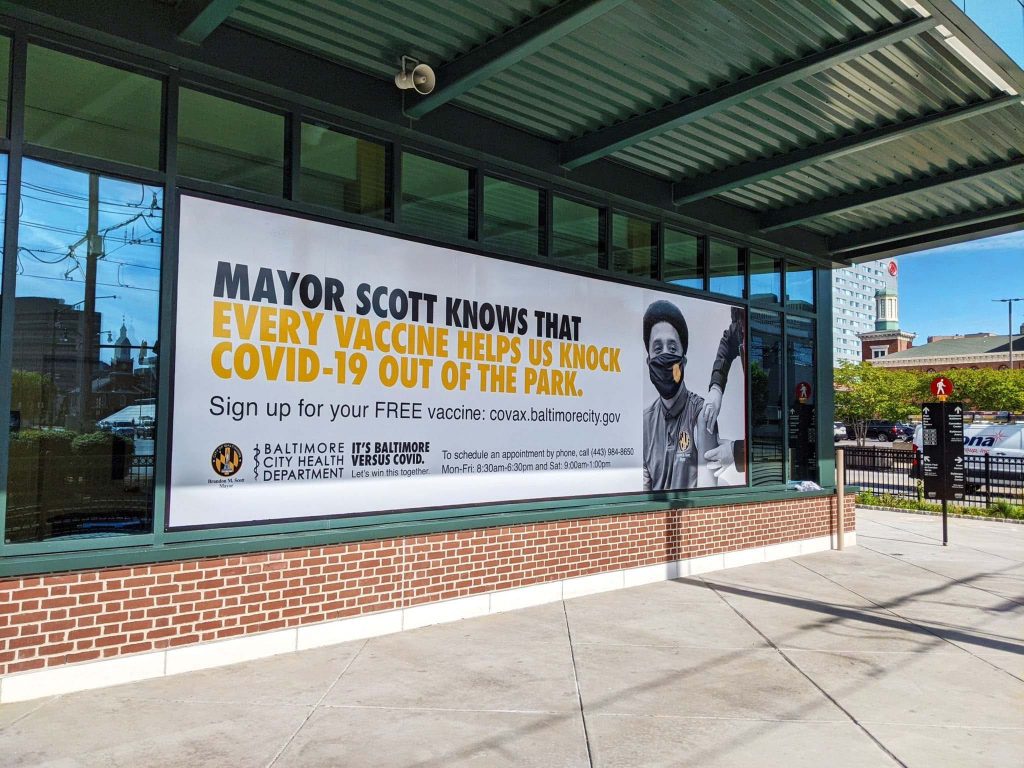
Using Data to Improve Lives
Bloomberg Philanthropies City Data Alliance
Bloomberg Philanthropies’ investment in city data use began with the launch of What Works Cities in 2015 to meet an urgent need: Few cities had the workforce needed to leverage data effectively. Focused on helping city halls better use data to solve problems, the program has trained 10,500 city leaders to build their data skills, from foundational practices to cutting-edge uses.
Bloomberg Philanthropies also introduced a certification program that does for cities and data what LEED (Leadership in Energy and Environmental Design) certification does for buildings and energy efficiency. When cities demonstrate that they have adopted best practices in using data, the What Works Cities Certification recognizes the high standard of their work. So far, 50 cities have been certified, with two – Los Angeles, California, and Louisville, Kentucky – becoming the first-ever platinum-rated cities.
These efforts have transformed the way local governments use data. According to a report published in 2021, the percentage of U.S. cities tracking progress toward key goals has more than doubled, from 30 percent to 75 percent, since 2015. The percentage of cities with a platform and process for releasing data to the public has also more than tripled, from 18 percent to 67 percent, and the percentage modifying their programs based on data analytics has more than doubled, from 28 percent to 61 percent.
In 2022, Bloomberg Philanthropies will build on this work through the City Data Alliance, which will reach 100 cities across the United States, Canada, and Latin America.
Convening City Leaders and Urban Experts
CityLab
CityLab is an annual convening of city leaders and top minds in city planning, public-sector innovation, economics, education, art, business, and community development. During the inaugural CityLab in New York in 2013, and at subsequent events in Los Angeles, London, Miami, Paris, Detroit, and Washington, D.C., these leaders have come together with one goal: to create scalable solutions to major challenges faced by cities everywhere.
While 2021 was an unusual year with unprecedented challenges, that did not stand in the way of CityLab. Held virtually, it was co-hosted by four cities: Bogotá, Colombia; Freetown, Sierra Leone; Helsinki, Finland; and San Francisco, USA. The event featured influential speakers including U.S. Vice President Kamala Harris, U.S. Transportation Secretary Pete Buttigieg, and mayors and experts from around the world.
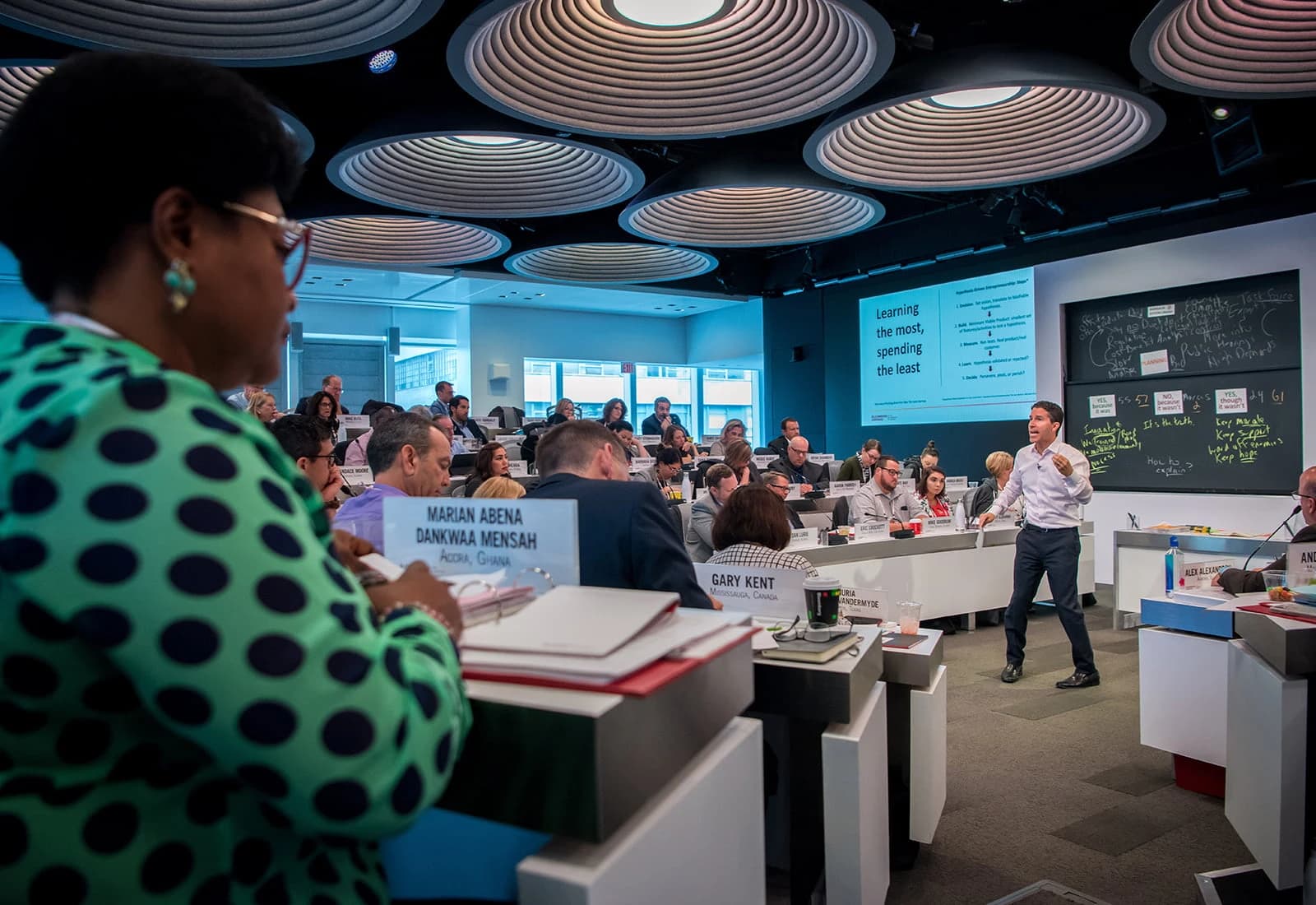
Bloomberg Philanthropies’ Government Innovation program
Top photo: Rourkela, India, a winner of the 2021 Global Mayors Challenge, is providing women entrepreneurs with access to cold-storage units that will reduce food waste, increase access to fresh foods, and support their economic advancement.
Credit: Soumya Sucharita Dash
